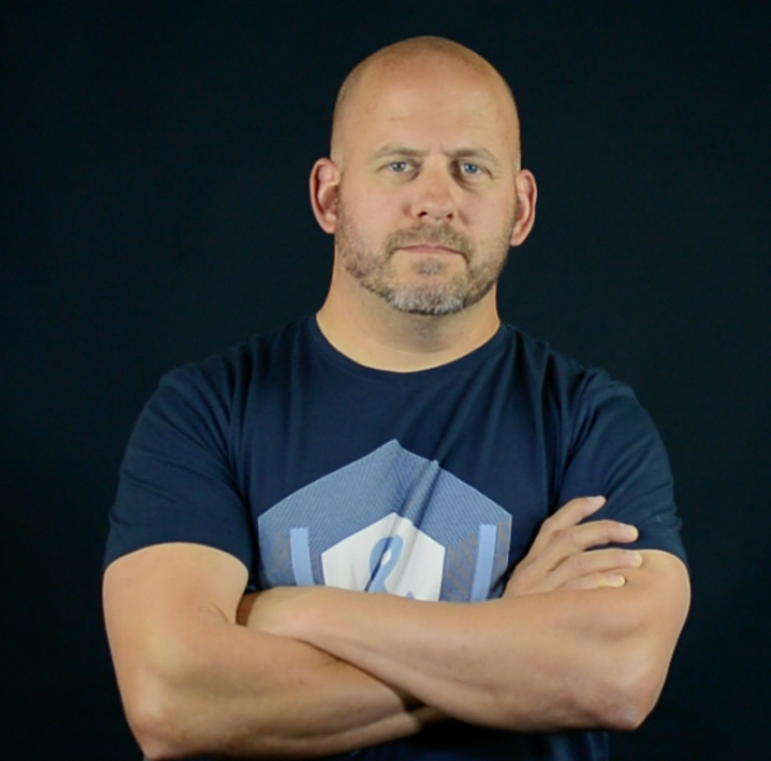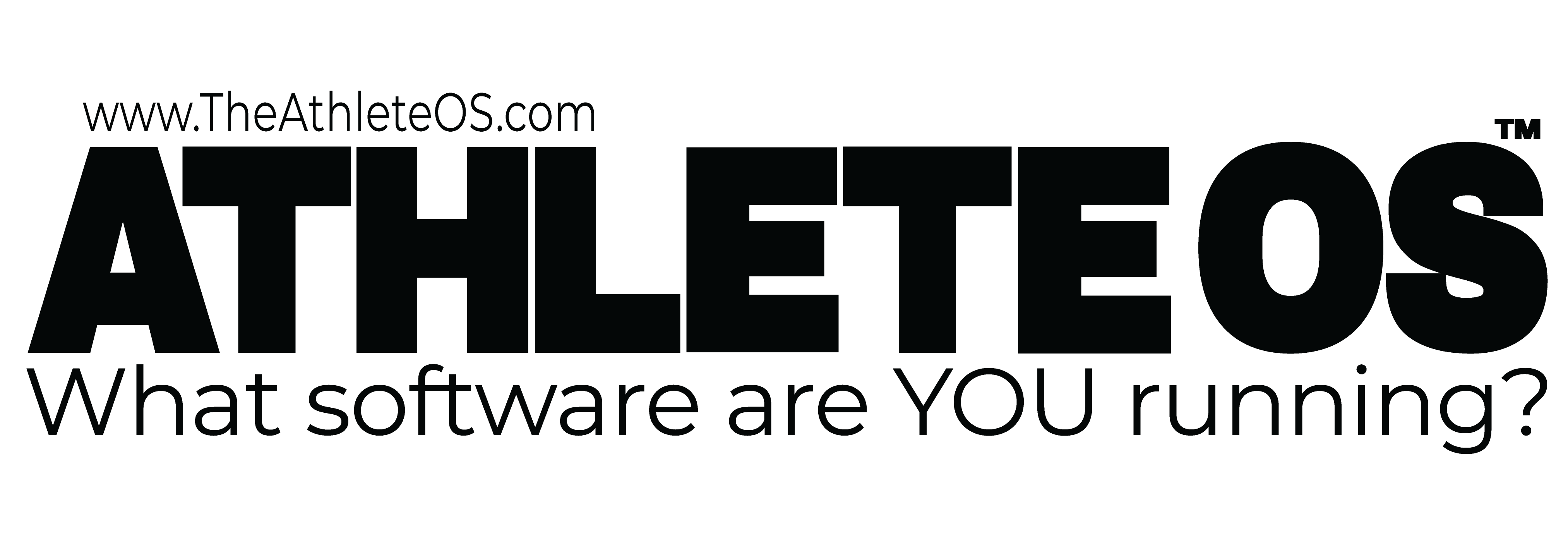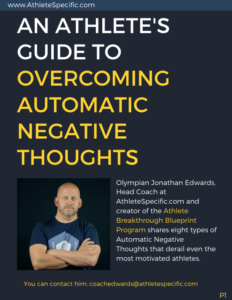In my book, “An Athlete’s Guide To Winning In Sports and Life” I have a chapter called, “Why Momma Ain’t a Racecar Driver”. In it I ask my athletes how it’s possible their mom isn’t a racecar driver by now seeing she’s spent so much time behind the wheel.
I mean, if you think of it, shouldn’t all those hours behind the wheel add up to skills so valuable she would HAVE to be a racecar driver by now.
It’s a model that makes sense, right? Truly, there are days when we just have to put in our time and we’ll get better…right?
Not exactly.
I was reminded again of this topic as many of my athletes are home, trying to figure out ways to train. Their parents (if they are home) are worried that their athlete’s “aren’t doing enough”.
“They need to get outside!”
“They aren’t spending enough time on their skills.”
“They are just watching Tik Tok all day!”
I feel you.
The problem is that your athlete has no vision right now and where there is no vision, there is no action towards that vision. There may be ACTION, but is it helping?
Just like mom behind the wheel.
The concept I’ll get into is called deliberate practice. It was popularized by Malcolm Gladwell in his NY Times Bestseller, The Tipping Point when he talked about the 10,000 hour rule and it is based on decades old research by Anders Ericcson.
The truth is you could throw 10,000 hours of activity to ANYTHING and not get very good at that thing. Take cooking. Or driving your car. Or typing. Would you call yourself a proficient texter by now? If not, why not?
It’s because you don’t have a vision about those things. You may have started thinking about becoming a Formula 1 race car driver when you were young but those dreams may have faded. Without the vision of becoming that F1 driver, all those hours behind the wheel were just that…hours. All those hours you’ve been texting? You probably still need to search for the poop emoji.
So with our athletes stuck at home right now, we are confronted with two mental concepts: 1) Deliberate practice and 2) Motivation, but they all come behind the vision the athlete has of him or herself.
With the coronavirus and everyone on lockdown the athlete is either home thinking of ways to reach their vision of themselves in the future or they are trying to get up and out do something like they used to do in their past. See the difference?
For my winter athletes, it’s kind of business as usual. Their season may have been cut short but it feels like there’s plenty of time to get ready for next season. By then, surely, we won’t be on lockdown. Right?
The off-season may have started a little early but that is an unexpected benefit. The vision is still there of them competing effectively come next fall and winter.
For my spring and summer athletes, because everything is up and the air, it just all seems…weird. We all were optimistic that after a couple of weeks the season might start up again. Now…it might be the END of the summer? It’s all vary vague, and to a competitive athlete, vague is not something they do well with.
So, when it seems vague, the vision also gets vague. It takes a very adult brain to be able to apply some experience to…vague.
Being prepared during uncertain situations comes from successful past experience during similar situations.
Odds are the athlete in your house doesn’t have that experience. None of us have experience for what we are going through currently and that’s what makes it even more difficult.
But what makes it easier is when an athlete has a clear vision of who they need to become in their future. That vision gives an athlete hope and a bit of anticipation. And that vision is what will drive them during this time of uncertainty.
If your athlete has experienced ANY sort of downtime, maybe due to injury or illness, they will remember that getting through that was tough but it was doable. All athletes can draw from that experience. Even though they were laid up for a while, they could SEE themselves competing again.
They could see their future self.
The future self drives all current decisions. If the vision of the future self is weak then the current decisions don’t really matter. The athlete could do…anything.
So while your athlete is home…here’s what needs to happen.
Vision of their Future Self
All talk in your house needs to be focused on who your athlete is going to BE when this all comes back online. We don’t know when that might be so we can only talk about that vision. The vision will drive all other decisions.
One of my athletes is an elite softball player who had been working on her ball striking ability prior to the season but didn’t get it where she was really happy once the season started. The season actually cut into her practice time and this unexpected break has given her the added time to really work on that. Her vision of her future self is strong and she is working to that vision every day.
Deliberate Practice
If the vision is strong then deliberate practice is easy. But if the vision is weak then deliberate practice isn’t going to happen. Practice will be happening, but it won’t be deliberate and then the argument would be, “Is it worth it?”
If your athlete has a strong vision then it’s going to be easy to come up with creative ways to train and practice. People are surprised that as an Olympian, sometimes we trained with whatever was available at the time. Your available resources are just that…yours. Whatever you have. If the vision is strong than ANYTHING will work. If the vision is weak then NOTHING will do.
Discipline and Motivation
When vision is weak then all an athlete can rest on is Discipline.
Discipline is the ability to do what needs to be done regardless of how you feel. If you have a vision and you decide that you’re going to make that vision happen you will do it regardless of what environment you are currently in. I’ve stretched in airports and done pull ups at rest stop gas stations. I’ve lifted beer kegs from the hotel restaurant I was staying at and did explosive exercises in the pool.
But there are days when you just don’t feel like it. You may be truly fatigued or you may have lost the vision for a little bit. That is when…if there is ANY faith that the vision can come true…that an athlete just has to settle into The Work.
The Work can be anything but it is basically something, anything, that can be done given the AVAILABLE resources. I call this “Punching The Clock”. The work may not be great, but it’s getting done. It may not be deliberate but it can add up if there is just the smallest amount of…
Intention
When an athlete has to get dragged out of the house to train, there is ZERO intention. On a scale of 1-100 it’s 0. Maybe a 1. If that’s the case, you may as well go back to bed. Play some Minecraft. Scroll through TikTok.
And if the athlete is home right now, this can be the most frustrating thing to a parent who is also home.
Parents see potential.
Athletes…see pain and suffering.
But if the athlete has VISION then the pain and suffering is something to look forward to.
But if they can’t…well.
Currently our athletes are home. Stuck. Many are unsure and many are actually grieving. They are in denial. They are angry. Bargaining. Or depressed.
We want them to get to acceptance and get them back to that vision and get to acceptance so WE can feel better.
One of my parents called me the other day and said, “She just won’t get off the couch!!”
I reassured him that getting her working might make HIM feel better and it may, or may not make HER feel better. But just because she’s putting in the time may actually not be helping her at all.
What To Do?
For the athlete who is home and has lost track of the vision, here are a few things that can be done to rekindle the flame and get things back on track:
Watch Old Game Tape
I call “Game Day” ANY competitive environment that you might compete in. So if you’re a figure skater your last competition was Game Day. If you’re a skier, same thing. Race Day is Game Day.
Get out the footage or the race sheets or the stats from your last Game Day and get excited again.
Stay In Touch With Coaches and/or Teammates
For the athletes who work with me in our Athlete Breakthrough Blueprint, we are in contact on a weekly basis and staying focused on the vision. My athlete’s STAY dedicated no matter what is happening. But for your athlete, they have just been sucked away from their second family, and now they are stuck with YOUR family!
Respect the fact that getting sucked away from your second family can be a big bummer. Now they are at home. Dad farts. Mom hits the wine just a wee bit too often. And that sibling of theirs? Yeah, they’ve thought of offing them in their sleep. (Not seriously but the thought HAS crossed their mind.)
Use any technology possible to keep that connection because in THAT family, there are people with a vision.
Don’t Force It
If your athlete is motivated and has a vision and they are HAPPY, let them work as much as they want. If it seems like they are TOO absorbed…they probably aren’t. Let them be.
We would like to see some level of autonomy, but if that’s not there just come to the athlete as a friend, a coach, a peer, and help them find their vision and agree to some base-level of work. Create a schedule.
If the athlete isn’t all that motivated, don’t expect them to be doing the same volume of work they were doing with their team. Ideally, they have more time now to do actually MORE work, but the environment and athlete is in can drive much of the work…how should we say…expectation. If there are no teammates around, it’s hard to replicate that level of intensity OR the same volume. So don’t force it.
Love ‘Em Up
The last thing our athletes need while they are home is someone(s) lording over them to do something they really don’t want them to do. Unless mom or dad is their main coach, find a happy place and let them be.
Inside your athlete’s head is a Coach who speaks to them with guilt and makes them feel horrible. Don’t add to that voice. Just love ‘em up.
Conclusion
During this lockdown, our athlete’s are suffering. They may not always show it on the outside but these are weird, difficult times. We are ALL adjusting.
The key to reaching your athletic goals comes down to deliberate practice. It’s a scientific principle that tells us that the time we spend practicing is ONLY good if we are gauging it against a vision of our future self. If that vision is fuzzy, you could argue that NO amount of practice is helping.
While your athlete is home, don’t beat them up for not training. Encourage them to find their vision again. Speak only to the vision of them succeeding when all of this gets back to normal and to be that athlete they know they need to become to make their dreams come true. Speak to THAT and their motivation and discipline will increase.
When the vision is strong, an athlete is more inclined to get creative with their available resources. Remind them that Olympians and All-American’s don’t always train in posh gyms and manicured fields. No matter what the situation we make due with what we have available…at the time.
Stay positive. This too shall pass. Settle into the work and the vision will become clear again.
Join The #1 Mental Performance Coaching Program For Aspiring Athletes
US Olympian Jonathan Edwards set out to create the world's only mental performance coaching program specifically for aspiring athletes with big dreams and their families. If you've got an athlete with big dreams and you want the Insurance Policy to help make their athletic dreams come true...book your call today.

Olympian Jonathan Edwards
Founder - The Athlete Breakthrough Blueprint
Olympian Jonathan Edwards is the Creator of "The Athlete Breakthrough Blueprint": The world's only mental performance training program for aspiring athletes with big dreams. Over nineteen years he has worked with athletes who have gone on to or competed in NCAA D1, D2, D3, MCLA D1 and D2, the Olympics, NHL, MLL, NLL, NFL, and others. Feel free to link to this article from your blog and share it with an athlete, parent, or coach who would benefit from these concepts.

